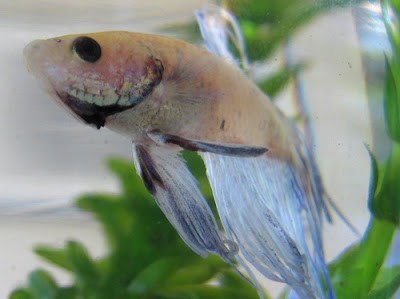Gill Disease Betta
Gill disease betta is a common ailment affecting many fish owners, particularly those who keep betta fish. If left untreated, it can cause serious health problems and even death in fish. But what exactly is gill disease betta and how can it be prevented and treated? In this post, we will explore the ins and outs of gill disease betta and provide useful tips for keeping your fish healthy and happy.
Pain Points of Gill Disease Betta
Gill disease betta can cause a range of uncomfortable symptoms for your fish, including labored breathing, lethargy, and discolored or swollen gills. Not only can this be painful for your fish, it can also be distressing for owners to watch. Additionally, the cost of treating gill disease betta can quickly add up if left untreated, leading to unnecessary financial strain for pet owners.
What is Gill Disease Betta?
Gill disease betta refers to a range of conditions affecting the gills of betta fish. Some common types of gill disease include gill parasites, bacterial infections, and inflammation. These diseases can be caused by a variety of factors, including poor water quality, stress, and improper diet. Symptoms can vary depending on the type of gill disease betta, but may include labored breathing, lethargy, and discolored or swollen gills.
Main Points about Gill Disease Betta
To prevent gill disease betta in your fish, it is important to maintain clean, well-oxygenated water, provide a balanced diet, and regularly monitor your fish for signs of illness. If you suspect your fish may have gill disease betta, take action immediately by performing a partial water change and quarantining the fish in a separate tank. Treatments for gill disease betta may include antibiotics, salt baths, and other medications prescribed by a veterinarian. By taking a proactive approach to fish care and regularly monitoring your fish's health, you can help prevent gill disease betta and ensure your fish live long, healthy lives.
My Experience with Gill Disease Betta
As a fish owner for many years, I have unfortunately experienced gill disease betta first-hand. One of my bettas began exhibiting signs of labored breathing and discolored gills, indicating a potential case of gill disease. I quickly performed a water change and moved the fish to a separate quarantine tank, where I treated it with antibiotics and salt baths. While the treatment process was challenging and required a lot of effort, my fish was ultimately able to make a full recovery and return to its original tank. Through this experience, I learned the importance of regularly monitoring your fish's health and taking quick action if you suspect an illness or disease.
Treatments for Gill Disease Betta
Treatments for gill disease betta may vary depending on the type and severity of the disease. Some common treatment methods include antibiotics, salt baths, and other medications prescribed by a veterinarian. Additionally, improving water quality and providing a balanced diet can help prevent the onset of gill disease betta. It is important to monitor your fish closely and seek professional treatment if symptoms persist or worsen.
Preventing Gill Disease Betta
Gill disease betta can be prevented by maintaining clean, well-oxygenated water, providing a balanced diet, and regularly monitoring your fish's health. It is also important to avoid overcrowding your tank and to quarantine any new fish before introducing them to your existing tanks. By taking a proactive approach to fish care, you can help prevent the onset of gill disease betta and keep your fish healthy and happy for years to come.
Question and Answer
Q: What causes gill disease betta?
A: Gill disease betta can be caused by a variety of factors, including poor water quality, stress, and improper diet.
Q: What are some common symptoms of gill disease betta?
A: Some common symptoms of gill disease betta include labored breathing, lethargy, and discolored or swollen gills.
Q: How is gill disease betta treated?
A: Treatments for gill disease betta may vary depending on the type and severity of the disease, but may include antibiotics, salt baths, and other medications prescribed by a veterinarian.
Q: How can gill disease betta be prevented?
A: Gill disease betta can be prevented by maintaining clean, well-oxygenated water, providing a balanced diet, and regularly monitoring your fish's health, as well as avoiding overcrowding your tank and quarantining new fish before introducing them to your existing tanks.
Conclusion of Gill Disease Betta
Gill disease betta can be a serious problem for fish owners, but by taking a proactive approach to fish care and regularly monitoring your fish's health, it can be easily prevented and treated. By maintaining clean water conditions, providing a balanced diet, and seeking professional treatment if necessary, you can keep your fish healthy and happy for years to come.
Gallery
What Is Gill Disease In Betta Fish - BETTAKUS

Photo Credit by: bing.com / betta plakat koi tank gill oxygen
Changing Color Around Betta’s Gills - Fish Care

Photo Credit by: bing.com / gills betta fish
Gill Disease In Betta - BETTAKUS

Photo Credit by: bing.com / gill temperate betta petmd bacterial
Gill Hyperplasia | Betta Fish Care
Photo Credit by: bing.com / gill flukes hyperplasia fish betta parasites disease diseases tropical ich fishes gills symptoms bettas parasite water open spot common addiction
Betta Disease: Inflamed Gills ~ Nice Betta

Photo Credit by: bing.com / betta disease gills inflamed gill fish
